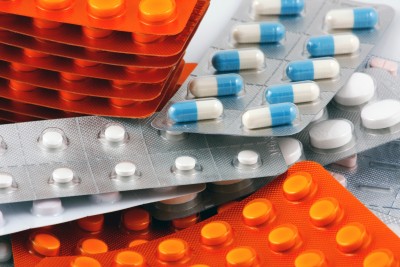<p>Who hasn&#8217;t wished for a magic pill at some point in life &#8211; perhaps a pill that would clear up pimples or build big muscles or cause fat to melt away? Unfortunately, medicine rarely lives up to people&#8217;s fantasies of an easy, safe fix for problems. Weight-loss pills are no exception. As you&#8217;ve already seen, your health is likely to improve if you take off some excess pounds. You may be tempted by what seems an easy route to weight loss &#8211; a weight-loss pill.</p>
<p>In fact, weight-loss drugs are not magic. No weight-loss pill takes off excess fat by itself. Rather, weight-loss drugs work only if you cut calorie intake (by eating less food) and increase calorie burning (by being more active). Like any other drug, weight-loss drugs have side effects and can interact with other drugs. So you should talk to your doctor before you use any of them.</p>
<p><strong>Traits Of Weight-Loss Drugs<br />
</strong><br />
The drugs currently approved for weight loss act by dampening appetite, by affecting fat absorption, or by increasing a sense of fullness. If people are less hungry, they should find it easier to stick to a reduced-calorie diet.</p>
<p>But hunger is not the only reason people eat. If someone on a weight-loss drug continues to eat as much food as before, he or she will lose no weight. So weight-loss pills are used with a reduced-calorie diet and increased physical activity, not instead of them.</p>
<p>In general, people who take weight-loss drugs lose an extra 4 to 40 pounds (although, as with any drug, people vary in how well they respond &#8211; some lose more than 100 pounds). Drugs help people lose weight for about 6 months, and after that, no more pounds are usually lost. But some people do continue to lose weight.</p>
<p>Studies of weight-loss drugs that lasted more than 6 months are few. But these longer studies do show that the drugs don&#8217;t stop working after 6 months. Rather, the drugs&#8217; action then is to maintain weight loss by slowing or stopping regain.<br />
Obesity is a chronic condition, just like high blood pressure. If people get good results from a blood pressure drug, they don&#8217;t expect the effect to last after they stop taking the drug. So it is with weight-loss drugs. If the drug is stopped, it stops working. Unless a person continues to restrict calories, the weight comes back.</p>
<p><strong>What Should People Who Took Fenfluramine Or Dexfenfluramine Do?<br />
</strong><br />
Millions of Americans took dexfenfluramine (Redux) or fenfluramine (Pondimin, part of the popular phen/fen combination) before these drugs were removed from the U.S. market. They were withdrawn in September 1997 because their use was linked both to a lung disease called primary pulmonary hypertension and to a heart valve disorder.</p>
<p>On November 13, 1997, the Department of Health and Human Services released interim (temporary) recommendations for people who took either drug. The recommendations say that these people should do three things:</p>
<p>First, see a doctor. The doctor should take a complete medical history and examine you for evidence of heart or lung disease. Second, if the doctor finds signs that you might have heart or lung disease, you should have an echocardiogram. Third, if the doctor finds no sign that you have heart or lung disease, you should still have an echocardiogram to look for valve problems in one situation: If you are to have certain dental or medical procedures that can allow bacteria into the bloodstream.</p>
<p>It is important for people who have a valve disorder to find out about it. People with leaky heart valves should take antibiotics before procedures that can let bacteria enter the bloodstream. The reason is that these people are prone to getting bacteria infections of the lining of the heart and the covering of the valves. This infection is called &#8220;bacterial endocarditis.&#8221;</p>
<p>The American Heart Association (AHA) issued guidelines in June 1997 for antibiotic use. In general, antibiotics are recommended before procedures involving the gastrointestinal tract and the urinary tract &#8211; that is, the systems that process food and drink from the time you ingest them until what&#8217;s left leaves the body as waste. According to the AHA guidelines, people with valve disease should take antibiotics before tooth cleaning, tooth removal, gum surgery, and removal of the tonsils, among other procedures.</p>
<p>To be on the safe side, if you have a valve problem, always talk to your doctor before having any dental work or medical procedure. Your doctor can then write you a prescription if antibiotics are advisable.</p>
<blockquote><p><em>Valerie is a fitness blogger who loves to write on health and fitness, recently she got her hands on a Weight Loss book by Walter Wood and found it very interesting to read.</em></p></blockquote>

Do Weight Loss Pills Ever Work?
